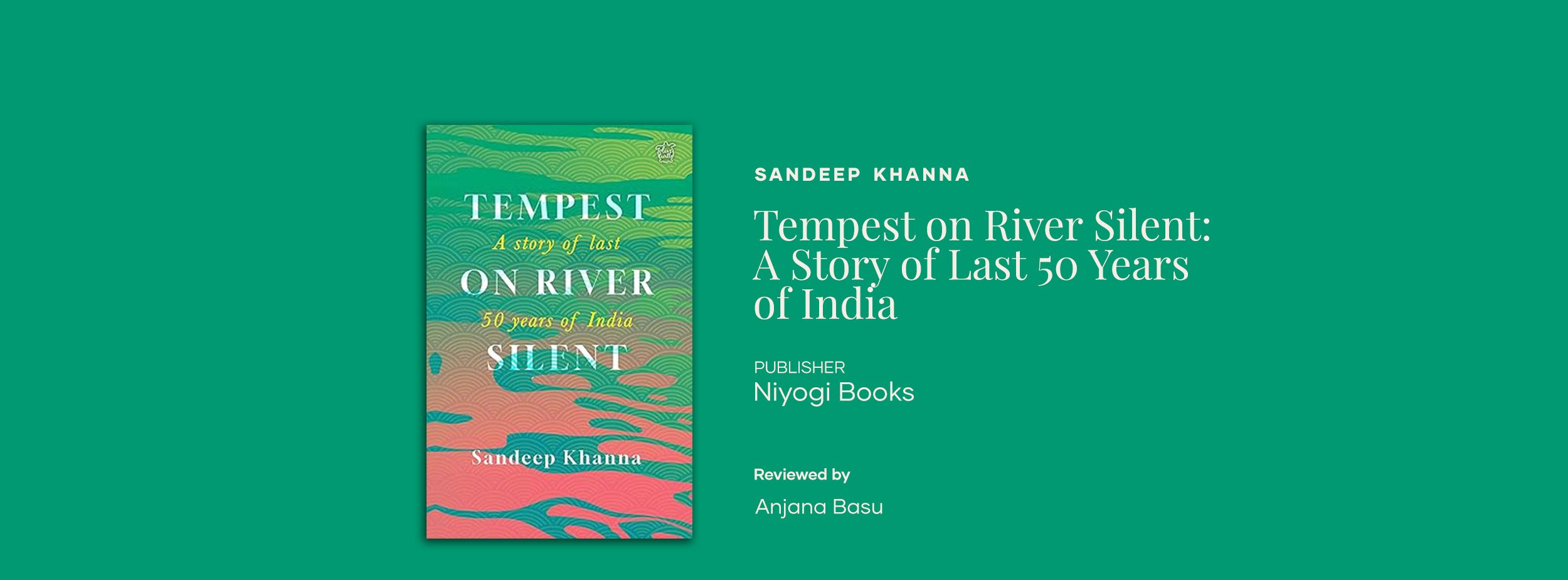

Sandeep Khanna’s Tempest on River Silent is a measured narrative that follows Devavratt ("Dev") and his friends as they evolve from the hopefulness of student life in the 1970s to the complexities of being a professional in modern India. Khanna’s account is reflective and grounded, examining the interplay between personal growth and societal change without getting into any grand declarations.
It may not have been obvious at the time, but 50 years ago, India had reached a crucial juncture. In the midst of an economic crisis and political unrest, the need for decisive measures was apparent and it came in the shape of Indira Gandhi imposing Emergency rule—a policy that lasted less than two years. More significant, however, was the subtle shift in economic policy away from an overtly leftist approach. This transition helped to end decades of economic underperformance and eventually laid the groundwork for a new ‘India story.’ Khanna weaves these historical undercurrents into the narrative not by dwelling on the past, but by using them as a nuanced backdrop that informs both the characters' lives and the overall national mood.
The book explores India’s gradual shift from a post-colonial society to an emerging global presence with all the problems that non-liberalisation entailed. Khanna’s storytelling is enriched by personal observations and everyday details that were very much part of life and times in the 70’s. From sipping Campa-Cola because Coke was then not available in the market to the compulsory vocational subject which had to be taken at University that time which was referred to as Socially Useful Productive Work or SUPW and from the shared cultural moments of watching TV’s first serials - in Dev’s case not Hum Log but poetic renditions of Neeraj - to witnessing the rise of icons such as Tendulkar, the novel captures the small, defining moments that have marked India’s transformative decades. Dev stays on a balanced kind of perspective, neither here nor there, neither popular nor unpopular – the question is how will he respond to the changes around him as a Hindu and an Indian?
The development of Dev’s character and his reactions are handled with sensitivity and insight. Through Dev’s introspective journey, the narrative treats nationalism as a lived experience—shaped by personal and collective challenges—while raising questions about how one might maintain cultural identity amid rapid modernization and international influences. Khanna encourages readers to weigh the balance between tradition and change for themselves and draw their own conclusions. There are musings on Hindu philosophy and spirituality with discussions of the ancient texts.
The title, Tempest on River Silent, encapsulates the book’s central metaphor. The “tempest” represents the disruptive forces of change that unsettle both individual lives and the broader cultural landscape, while the “river silent” evokes the enduring continuity of tradition and heritage that flows quietly beneath the surface. Will Dev’s life continue to flow steadily like the silent river, or will it be disrupted by tempests? Can he find balance amid the upheaval, or will the challenges prove too overwhelming? This careful balance between upheaval and stability is mirrored in the personal dilemmas faced by Dev and the collective experience of a nation in transition.
Additionally, Khanna has keen observations to offer on changing cultural nuances. Despite the fact that colonial times are over, he comments affectionately on British life, drawing from his own experiences to provide perceptions that add texture to the narrative. What is praiseworthy is the fact that he refrains from engaging in historical debate, choosing instead to confine his commentary to thoughtful reflections on everyday encounters and relationships that span both love and friendship. This focus on personal observation over historical analysis gives the book an intimate and contemplative tone.
With a background in corporate leadership and a passion for history and poetry, Khanna infuses his narrative with authenticity and depth. Tempest on River Silent is an exploration of both personal and national identity, inviting readers to consider how tradition and modernity coexist against the challenges of change. Ultimately, the novel offers a quietly engaging look at the evolving social fabric of India—an exploration of life’s everyday moments set against the backdrop of a nation in transformation.
If there is an issue it is the length – which requires focus in a time of increasingly short attention spans and is the result of the density of Khanna’s meditative style.
